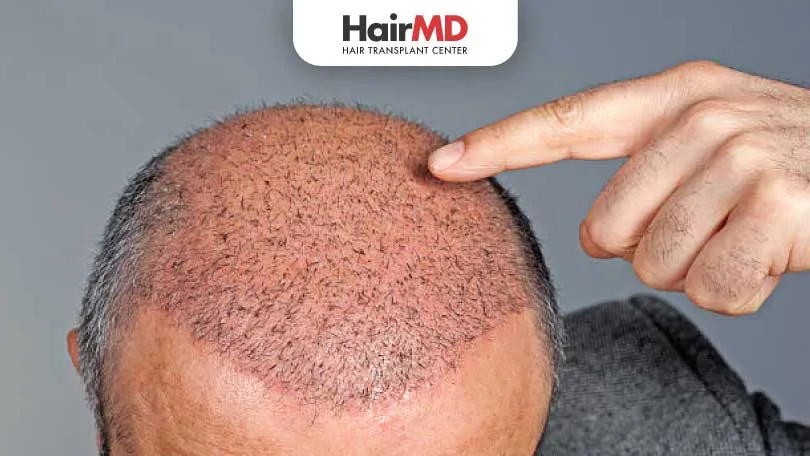11th May, 2024
In today’s fast-paced world, many people face hair loss due to unhealthy lifestyles, which can eventually lead to baldness. As a result, more individuals are turning to hair transplants for a solution. If you’re wondering, “Is a hair transplant worth it?” or “Will my hair grow back quickly after the procedure?” you’re not alone.

This guide will provide you with the answers you need, helping you make an informed decision about whether a hair transplant is the right choice for you. Let’s explore the benefits and expectations of this popular procedure.
Table Of Content
- What is Hair Transplant
- Stages of Hair Growth After Hair Transplant
- Important Facts to Remember to Speed Up Hair Growth
- Treatment and Medication After Hair Transplant
- How Much Time Does it Take to Grow Hair After Hair Transplant?
- After Hair Transplant Does Hair Grow Back?
- Does Transplanted Hair Get Thick Over Time?
- Conclusion
What is Hair Transplant
Stages of Hair Growth After Hair Transplant
Important Facts to Remember to Speed Up Hair Growth
Treatment and Medication After Hair Transplant
How Much Time Does it Take to Grow Hair After Hair Transplant?
After Hair Transplant Does Hair Grow Back?
Does Transplanted Hair Get Thick Over Time?
Conclusion
Popular Q&As
FUE vs FUT: Which one is a Best Method of Hair Transplant?
Considering a hair transplant but unsure whether FUE or FUT is better? You’re in the right place! Let’s explore the differences and help you make the right choice.
What are the Precautions Before Hair Transplant?
All of us are familiar with hair transplant, planning to go for a Hair Transplant. Let’s see what all pre-hair transplant precautions we should consider.
Is Hair Transplant Successful in India?
Curious if hair transplants are successful? Consult our expert, Dr. Dhananjay Chavan, with 34+ years of experience and over 700 successful cases.
We Got Your Back! Ask Us Anything On Your Mind!
Reach out to us on


